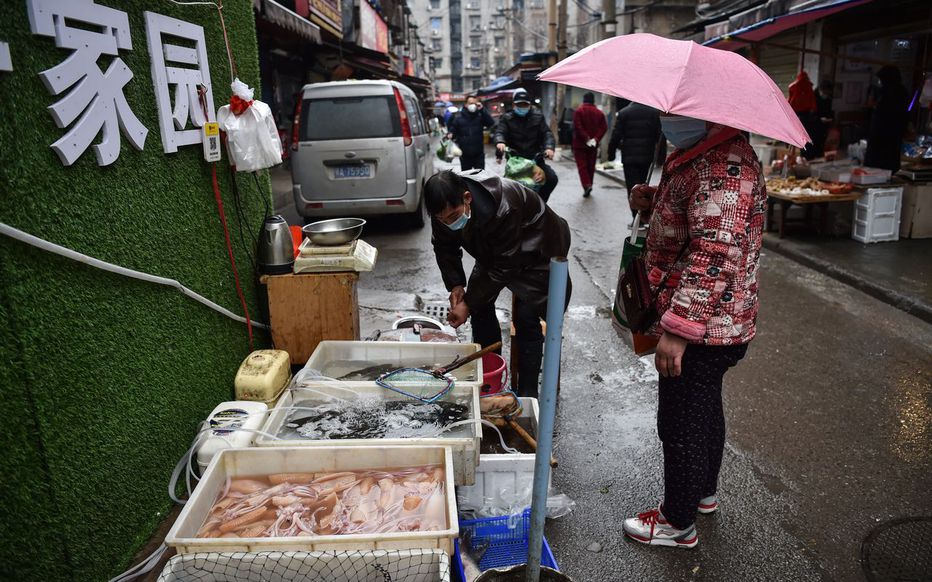Trump threatens China as trade deal quietly crumbles
CNN | 20 April 2020
Trump threatens China as trade deal quietly crumbles
It’s difficult to see past the urgency of the coronavirus crisis and its impact on the global economy. But with Donald Trump’s jabs at the Chinese government becoming sharper, it’s worth considering that tension between the two nations could boil over in the coming months.
The phase-one deal that ended the year-long trade war between the U.S. and China is on the verge of crumbling. Even if it remains intact, a phase-two deal is starting to look impossible.
Trump Pins Coronavirus on China
This weekend, Trump insinuated that Beijing may have caused the coronavirus pandemic intentionally. This marks an escalation in Trump’s accusations, which so far have centered around the Chinese government intentionally misreporting coronavirus case numbers. The president called for investigators to go to China on Sunday night during a coronavirus briefing:
[Was coronavirus] a mistake that got out of control, or was it done deliberately? There’s a big difference between those two.
Up until this weekend, Trump has been playing both sides when it comes to the Chinese government’s responsibility for the coronavirus pandemic. While he’s been very complimentary of Xi Jinping, he’s also questioned the reliability of Chinese data and cut off funding to the WHO claiming it pandered to China.
But his latest claims that China may have intentionally caused the pandemic are unlikely to be well received in Beijing. On Saturday, Yuan Zhiming, the director of Wuhan National Biosafety Laboratory, said he’s confident the virus didn’t come from his lab:
There is absolutely no way that the virus originated from our institute. They don’t have any evidence on this, what they rely on is only their guess. I hope such a conspiracy theory will not affect cooperation among scientists around the world.
The so-called conspiracy theory is gaining traction in America, where many are pointing to the fact that Beijing insisted on including a ‘force majeure’ clause in the phase-one trade agreement. The clause allows either side to fall short of their obligations due to an unforeseeable event outside of their control.
China Won’t Meet Trade Deal Obligations
The clause will come in handy for China, as the nation is unlikely to make good on its promise to buy $200 billion worth of U.S. goods and services by the end of 2021. Most are expecting the Chinese economy to eke-out growth of around 1% this year—making it nearly impossible for the nation to meet its trade commitments.
china trade deal
A key part of the trade deal was China’s promise to buy at least $40 billion worth of U.S. agricultural products—soybeans being the main import. But so far Beijing hasn’t come close to hitting that target— instead, upping its purchases of Brazilian soybeans, which have become considerably cheaper.
That leaves Trump with two options—offer China leniency on the terms of the trade deal in light of coronavirus, or prove the pandemic wasn’t a circumstance outside China’s control. It looks like Trump is going with the latter, but his calls for an investigation are probably more for show.
U.S.-China Relations Look Rocky
The likelihood that China intentionally caused a pandemic is low. Pursuing that storyline could cause untold damage for both China and the U.S., and neither government wants any more destabilization. The bottom line: The two have to play nicely—at least until coronavirus has been contained.
Wharton Dean Geoffrey Garrett pointed out that although the two sides have been openly critical of each other, it’s unlikely to go beyond that in the near-term:
I suspect “no new crises” will extend through the remainder of 2020, above all because both China and the U.S. will do whatever they can to try to engineer something like a V-shaped recovery in the final quarter of the year.
In other words—don’t expect to hear much about the phase-one deal and whether or not it’s being met over the next year. Both sides will continue to posture, but neither can afford to enter into a full-blown conflict right now.
world economies, gdp
In the longer-term, Garrett points out that the post-coronavirus world will support deglobalization and encourage the U.S. and China to become less reliant on each other. That’s not only a headwind for a phase-two trade deal, but it also paves the way for festering tension to accelerate into a full-blown conflict between the two countries.
“I fear the ultimate price of deglobalizing will be measured in terms of increased geopolitical instability and the greater chance of conflict between China and the U.S. above all.”






